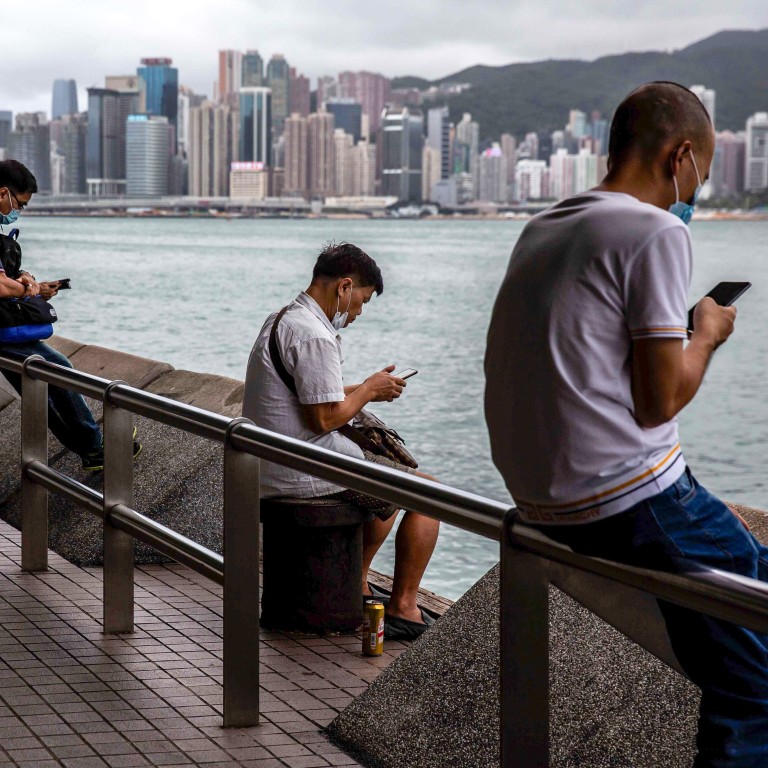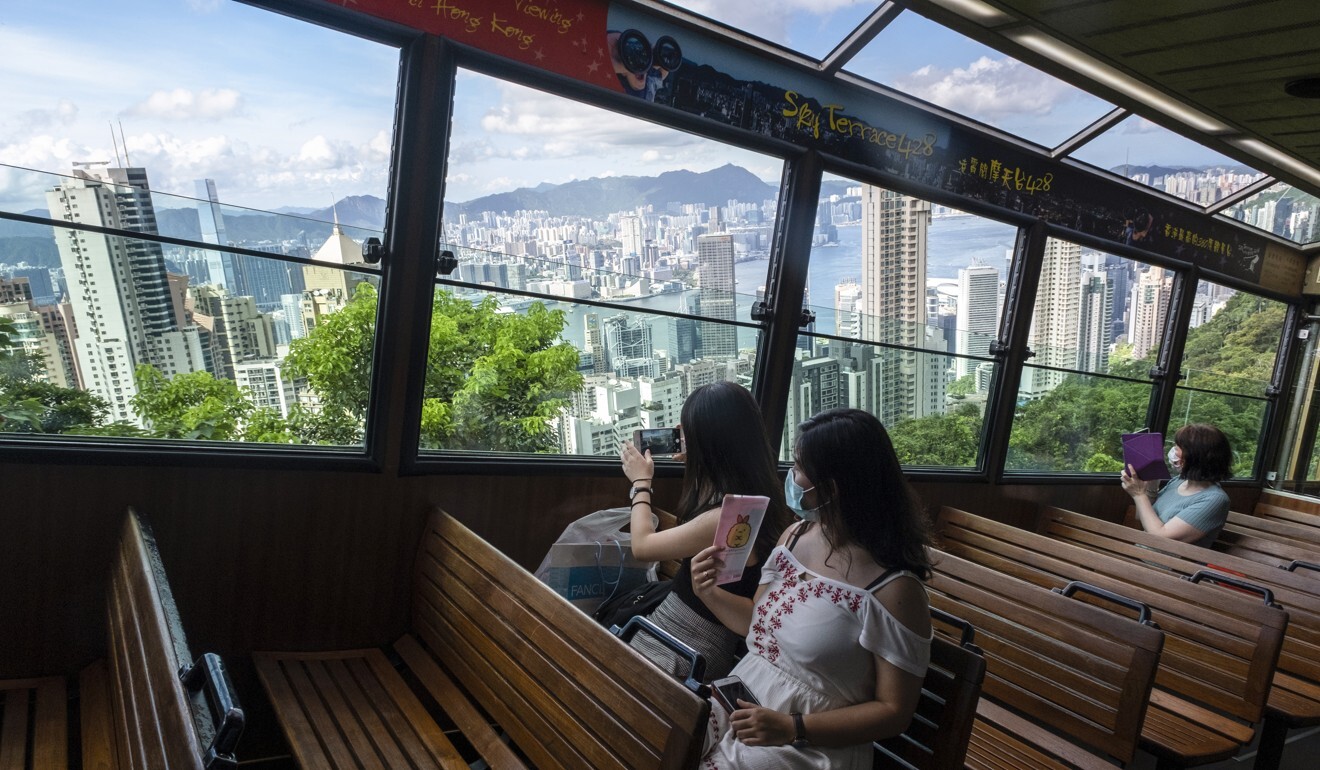
Hong Kong marks first day with no local Covid-19 cases since September 15, as city welfare chief says ‘imperfect’ wage scheme saved jobs
- Secretary for Labour and Welfare Law Chi-kwong concedes relief effort won’t save every job, but ‘furloughs could be much worse’ without it
- Sole infection recorded on Saturday an imported case involving a 48-year-old arrival from Bahrain
The newest patient, a 48-year-old arrival from Bahrain, pushed the city’s coronavirus case tally to 5,059.
Health officials said the male aircrew member, who landed in the city on Thursday, had a virus test on arrival and stayed at the Hong Kong SkyCity Marriott Hotel in Chek Lap Kok. Two other crew members on the same flight were listed as his close contacts and had to be quarantined. Officers found the man fell ill on Monday.
While no local cases were recorded on September 15, four imported infections were identified.
Speaking on a Saturday radio show, Secretary for Labour and Welfare Law Chi-kwong conceded the city’s wage subsidy scheme would not save the job of every resident, but said it had bolstered a July-August job market that was worse than the peak of unemployment during the 2003 severe acute respiratory syndrome (Sars) outbreak.
“We know [the scheme] is not perfect, but it did bring some help,” Law said, referring to the HK$81 billion (US$10.5 billion) Employment Support Scheme, under which the government pays up to 50 per cent of employees’ salaries through their employers for six months, with the monthly subsidy for each worker capped at HK$9,000.
Law explained that while the job market remained in poor shape, about 50,000 more people were employed in July compared with April, indicating the wage subsidies had worked.

“Without the scheme, the furloughs could be much worse,” he said.
Despite the jobless rate hovering at a 15-year high of 6.1 per cent for the three-month period between May and July, Law said setting up unemployment help for those who lost their jobs during the pandemic would be too costly and take at least 18 months to implement.
Meanwhile, supermarket chains ParknShop and Wellcome had followed through on the government-imposed condition that they provide discounts and special offers to customers to qualify for the second tranche of wage subsidies, Law said.
ParknShop on Wednesday unveiled a HK$32 million lucky draw cash giveaway, while rival Wellcome said a day earlier it would roll out HK$120 million worth of sweeteners and keep the price of 300 daily goods unchanged for six months.
Law said those plans met the requirement that they gave back half the cash received from wage subsidies to the community.
“[The government] also encourages the supermarket chains to offer discounts to the public in general,” he added.
But while supermarkets had been among the few sectors to thrive amid the pandemic, others said even the wage subsidy scheme had not been enough to keep them afloat.
Freddy Yip Hing-ning, president of the Hong Kong Travel Agent Owners Association, said the tourism sector had been the hardest hit and that government relief packages would never be enough given the length of time travel agencies had to bear operating expenses with no income.

Yip renewed calls for the government to specifically relax restrictions on public gatherings from four to 30 for the tourism sector, so they could begin organising local tours.
He also said a future Hong Kong Tourism Board scheme that would subsidise domestic tours should set no limit on the number of local firms that could apply.
“I urge the Tourism Board not to set a quota [on the number of travel agents under the planned scheme] … All licensed travel agencies that run local tours should be given a chance to apply,” he said.
Pro-establishment lawmaker Ma Fung-kwok, representing the sports, performing arts, culture and publication sectors, meanwhile, said he estimated that many workers in the industries he represented were freelancers who had been dealt a major blow by the pandemic, with some jobless for eight to nine months.
But the government has not been very willing to give us more support, so I am very anxious
Ma estimated that while there were more than 100,000 self-employed people facing an uncertain job status in his sectors, only about 40,000 of them were eligible for a one-off HK$7,500 handout under the government’s wage subsidy scheme.
“Most of the rest cannot get a cent,” he said.
He noted that many performance and business venues had been forced to close as the epidemic intensified and many more had been unable to operate as usual.
“But the government has not been very willing to give us more support, so I am very anxious,” he said.
A representative from Hong Kong Live Performance and Production Industry Association said he hoped officials would allow businesses to run online concerts at vacant venues for free.
Separately, applications open on Sunday for a one-time handout of HK$10,000 to low-income, non-permanent residents, with applicants to receive the money in about eight weeks.
Law encouraged the more than 200,000 people expected to benefit from the scheme to submit their applications online. They also have the option of signing up at 17 designated Bank of China branches across the city.
The funding for the handout will come from the Community Care Fund, which was established by the government in 2011 to help residents dealing with financial hardship.
Law reiterated that Bank of China had been chosen to implement the cash handout to save crucial time that would have been otherwise spent setting up the system across all banks.



